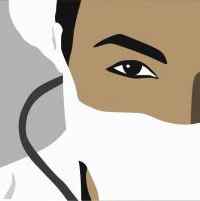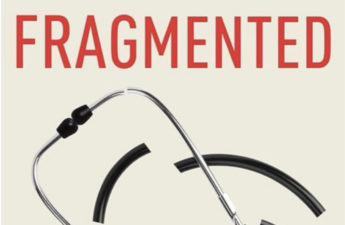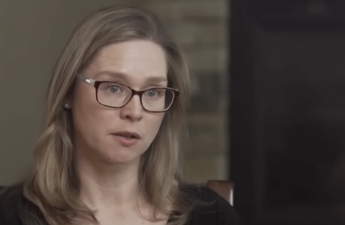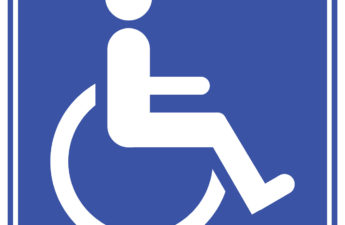Category: Healthcare Providers
The design and marketing of mental health chatbots may result in users’ misconceptions about their therapeutic value.
Do implicit bias trainings on race improve health care?
There is increasing evidence that implicit bias – non-conscious attitudes toward specific groups – is a source of racial inequities in certain aspects of health care, and lawmakers are taking note.
Many travel nurses opt for temporary assignments because of the autonomy and opportunities − not just the big boost in pay
That autonomy allowed them to pursue personal and professional interests that were meaningful to them, and it made some of the other hassles, such as long commutes, worth it.
The ‘doctor of nursing practice’ will see you now
Amid a shortage of doctors and an explosion in the number of nurse practitioners with doctorates, many nursing groups are pushing to expand what nurses can do without physicians’ supervision. Physicians, meanwhile, are pushing to keep nurse practitioners and physician assistants under their oversight, arguing that giving more autonomy to providers with less rigorous training could put patients at risk.
Modern medicine has its scientific roots in the Middle Ages
How the logic of vulture brain remedies and bloodletting lives on today
Book Review: Two Critiques of America’s Ailing Health Care System
Two recent books explore a truth that is obvious to nearly everyone who works in health care and surprising to almost everyone else: Through no fault of their own, doctors often don’t know what they are doing and, even when they do, America’s patchwork way of paying for health care may prevent them from doing it.
Doctors Emerge as Political Force in Battle Over Abortion Laws in Ohio and Elsewhere
Doctors who previously never mixed work with politics are jumping into the abortion debate by lobbying state lawmakers, campaigning, forming political action committees and trying to get reproductive rights protected by state law.
In the “Wild West” of Outpatient Vascular Care, Doctors Can Reap Huge Payments as Patients Risk Life and Limb
To move vascular procedures out of expensive hospitals, the government turbocharged payments to doctors’ offices. Instead of saving money, it started a boom that is making doctors rich and putting patients in danger.
Rural Health Clinics with ‘Head-to-Toe and Womb-to-Tomb’ Care
Rural health clinics are safety net providers whose original mandate was primarily to increase access to care for those on Medicaid or Medicare. They provided primary care and perhaps a few other services. But the Rural Health Clinic program has evolved over the years, and some clinics, like Primary Care Centers of Eastern Kentucky, have expanded their roles quite considerably.
After Idaho’s Strict Abortion Ban, OB-GYNs Stage a Quick Exodus
Later this month, the hospital, founded in 1949 near the shores of Lake Pend Oreille, will stop providing services for expectant mothers, forcing patients across northern Idaho to travel at least an additional hour for care. In June, a second Idaho hospital, Valor Health, in the rural city of Emmett, will also halt labor and delivery services. Those decisions came within months of Idaho’s abortion ban, one of the nation’s strictest.
Unconscious biases continue to hold back women in medicine, but research shows how to fight them and get closer to true equity and inclusion
Implicit bias is any unconscious negative attitude a person holds against a specific social group. These unconscious biases can affect judgment, decision making and behavior. Implicit bias is often one of the underlying issues that leads to discriminatory practices or harassment that diversity, equity and inclusion policies are meant to address.
Addiction Treatment May Be Coming to a Pharmacy Near You
new study showed patients who receive the medicine at pharmacies rather than at doctor’s offices stayed in treatment longer.
Doctors Are Disappearing From Emergency Rooms as Hospitals Look to Cut Costs
This staffing strategy has permeated hospitals, and particularly emergency rooms, that seek to reduce their top expense: physician labor. While diagnosing and treating patients was once their domain, doctors are increasingly being replaced by nurse practitioners and physician assistants, collectively known as “midlevel practitioners,” who can perform many of the same duties and generate much of the same revenue for less than half of the pay.
States Strive to Reverse Shortage of Paramedics, EMTs
To stave off longer 911 call wait times and the closure of ambulance services, many states are rethinking how they recruit and retain both paid and volunteer EMS workers. Nearly 40 state legislatures and Washington, D.C., considered bills in 2022 related to various aspects of emergency medical services, according to the National Conference of State Legislatures.
For Many Disabled Patients, the Doctor Is Often Not In
In one study, only 56 percent of doctors strongly welcomed patients with disabilities into their practice. Less than half were confident or very confident that they could provide the same quality of care to people with disabilities as they could to other patients.











